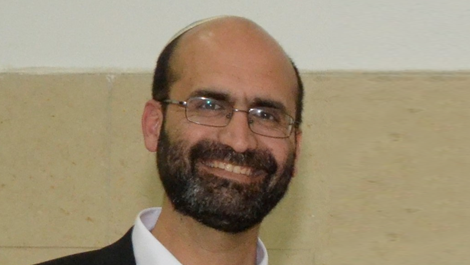Beit Midrash
- Family and Society
- Jerusalem and The Holy Temple
Judaism envisions an entirely different division of Jerusalem - one that is up and down, higher and lower, one of imaginary space and not of any area on the ground itself. The rabbis taught that the heavenly Jerusalem hovers directly over the earthly city itself. It is the heavenly Jerusalem that provokes all of the possessiveness and passion that surrounds the earthly Jerusalem. It is the heavenly Jerusalem that invests the earthly Jerusalem with its eternal qualities and special atmosphere. The heavenly Jerusalem represents a city of tolerance, peace and harmony, free of bitter contentiousness and constant strife. It serves as a challenge to the earthly Jerusalem, riven as it always has been by sectarianism, bigotry and pettiness of vision and behavior. "Rise up O Jerusalem" the prophet implores us. He means not only the physical rebuilding of a city that has been destroyed many times in its long centuries of existence. He also means meeting the challenge of emulating the city on high, the heavenly Jerusalem. As long as we will only deal with the earthly Jerusalem as though it is the only Jerusalem that exists for us, then most of its problems are unlikely to be amenable to permanent solutions. Only those that somehow glimpse the heavenly Jerusalem will also find hope and succor in the earthly Jerusalem. By attempting to infuse the spirit that the heavenly Jerusalem represents into our daily earthly Jerusalem lives and mores we recognize the reality of the division of the two Jerusalems and our task of somehow narrowing the differences between the two. One who deals only with one of the Jerusalems solely, be it the heavenly one alone or the earthly one alone, without factoring in the other city of Jerusalem does a disservice to one’s self and to the Holy City itself.
How to achieve the connection between the two Jerusalems has been an ongoing challenge for millennia. The two previous Jewish states that had Jerusalem as its capitol were ultimately tragically unsuccessful in their attempts to do so. We are now embarked on another attempt to do so. The problems that faced the first two attempts to attach the two Jerusalems one to another are certainly present in our current situation as well. Jerusalem is beset with external enmities and internal quarrels. It has a wide variety of individuals and groups, many of whom are convinced that they and they alone know what is best for the city and the Jewish people generally. Unfortunately they cannot all be right at one and the same time. So a little more modesty and a little less certainty would probably be of great help to our earthly Jerusalem. The bridge between the Jerusalems is founded on sensitivity to others, an ability to doubt one’s own piety and decisions and an abiding faith in the God and people of Israel. We should all attempt to walk on that bridge and struggle to be able to live in both Jerusalems simultaneously and permanently.
Rebuilding the Temple
The Three Weeks
Rabbi Gideon Weitzman | 5764

Can we Identify the True Eizov?
Rabbi Yirmiyohu Kaganoff | Shvat 1 5782























